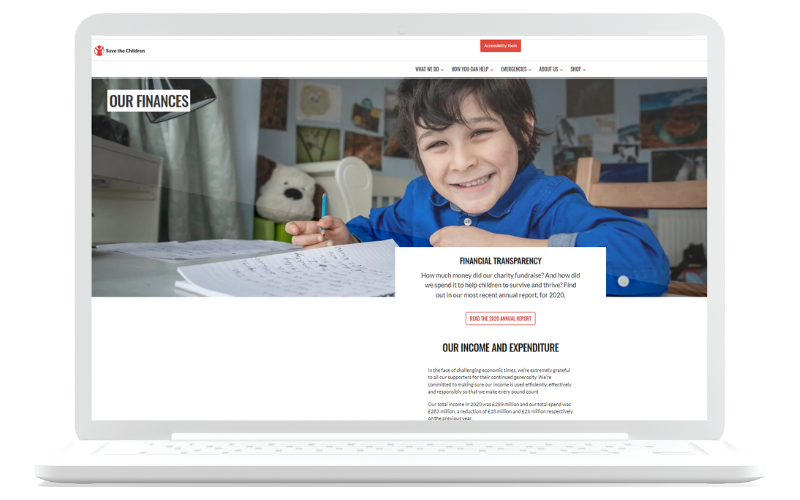Conquer the challenges of fundraising by avoiding these 15 things
One of the challenges in fundraising is the sheer amount of things to remember in order to remain compliant as well as get the result. Everything from language, tone of voice, facial expression, body language and distance from the potential donor has to be considered. And that’s before we even get to what a fundraiser actually says! This huge to-do list of face to face fundraising requirements is enough to keep anyone busy… But what about the ‘to-don’t’ list?! Many of our fundraisers learn what’s not working through experience, mystery shopper reports and charity organisation feedback, so we’ve comprised a list of all the things to avoid for professional fundraisers and volunteers alike.
Thinking that every person can be converted to a donor
Not every person is going to be touched by your cause, or be in a position to help.
Experienced fundraisers quickly learn that their time and energy is precious and they shouldn’t waste time trying to force something that’s not going to happen.
Instead, fundraisers should save energy on focusing on those who show signs they’re interested and have potential to become donors.
Although some people are harder to read than others, look for the general signs of engagement; nodding, eye contact, smiling, open body language, questions, comments… all of this shows you’ve got someone willing to hear you out.
Failing to explain who you are
It’s often assumed by the fundraiser that the listener will know as much about your charity and cause as you do, but don’t make this mistake.
Keep it simple to begin with your introduction; Hello! I’m [name] from [insert charity name] and we’re a charity that provides [insert service] to [insert beneficiaries].
Then, provided things go well you can add some layers, sprinkling in well-chosen questions to keep relating everything back to the listener.
You might talk about the origins of your charity - what triggered the founder to act upon an injustice or neglect?
You could also talk about how many people they’ve helped with numbers to back it up
You could also talk about your mission statement – what the charity wants to ultimately achieve
Giving context and putting effort into personalising the charity helps a donor connect to the cause.
Failing to talk about the why
Fundraise in a way that highlights why your charity is doing what they do.
All too often there’s emphasis on how non-profits will fix issues but not nearly enough on why they’re doing it.
Be succinct but include vital details on why your charity exists and clearly explain the purpose of the charity:
Who are the beneficiaries and why do they need help?
What will donated money help do?
How does it make a difference to the lives of the beneficiaries?
A fundraising proposal should give enough detail for the donor to understand exactly why their help is needed.
For example instead of:
‘We’re looking for donors to give £10 a month for Guide Dogs”
Say
“£10 a month provides 2 weeks’ worth of puppy food for a guide dog puppy in training. Once fully grown, guide dogs go on to help people suffering with sight loss to gain better independence and live a more normal, confident life”
Although both sentences ask for the same amount of money, you can see how the second option brings to life exactly how a donation will help, whilst giving a vision of what’s ahead.
Talking only about the organisation and not taking the time to find out about the donor
Ok so we know this one seems like a contradiction to the above, but it’s really important that fundraisers keep things going back to who’s listening.
What is your donor interested in? What causes do they already support? What’s their identity?
By spending your few precious minutes together learning about them – not just talking about you, fundraisers have already
Built the beginnings of a relationship
Have knowledge to help you know what to say next and how to pitch
Won better quality attention rather than them waiting for an excuse to end the conversation
Not making it clear how much you’re asking for
It sounds obvious, but we’ve lost count of how many times donors and mystery shoppers report back that they’re not clear how much they’re being asked for, or how long they’re being asked to commit to.
One of the key fundraising mistakes we see is fundraisers not quoting the correct amount the donor is being asked for, broken down into weekly or monthly instalments.
Fundraising for charity means you’re required to communicate accurately about exactly what the potential donor is being asked for and committing to, which means preparing ahead and knowing the numbers inside out.
Not appealing emotionally – only logically
Statistics are important because they give credibility and donors need to be able to trust that they’re in capable hands if they’re going to hand over their money.
But the flipside is by keeping it too factual you risk becoming a charity bore - let’s face it - nobody wants to spend time having a load of facts and figures reeled off at them.
People want connection, they want a two way conversation and interesting (short) stories to keep them captivated.
Appeal to their humanity – talk about the people and beneficiaries behind your charity and how they stand to benefit if they receive financial support.
Learn about the importance of storytelling in charity fundraising
Overloading with ALL the information
Sometimes fundraisers are guilty of going for a ‘spaghetti at the wall’ approach and throw every bit of information they know at the potential donor hoping something will stick.
Just no.
Much like we’ve talked about above, overloading with info just amounts to the other person switching off and looking for the exit.
Instead, go back to asking questions about them.
Take what you’ve learned and intelligently feedback interesting titbits that you think will best hit home for them.
Asking before you’ve established a relationship
The ‘ask’ is obviously the most crucial part of the charity fundraiser - donor exchange.
A big part of getting it right is choosing the right moment; too early and donors feel like you’re only focused on getting money out of them; too late and you risk missing the opportunity and crossing over a line into disengagement.
It should feel natural and have no awkwardness or hint of discomfort when a fundraiser asks for the donation. That means having a positive relationship first.
Making a good first impression with a friendly hello, asking questions that help you get to know as much about them as possible. Finding out about what inspires a donor and tailoring responses are all good relationship builders.
Winning trust with consistency, factual information and open responses help too.
Ideally, donors should be able to see where they can play a part in your mission; identifying their own values within the actions of the charity.
If donors feel truly connected to a cause, they’ll not only go on to be loyal long-term donors, they’re likely to share it with others too – and you’ll have created true superfans!
Learn why donor identity is important to charity fundraisers
Make sure your words are consistent with your supporting material
Charities often provide fundraisers with support material like leaflets, A4 information sheets, stuffed toys or branded tablecloths, gazebos and posters.
Obviously branding and standing out are important, but these items are also a great prop to help guide a charity fundraiser through their pitch.
Having something to refer to that ‘backs up’ what they’re saying helps to gain trust and reiterate the message. These visual aids also help the donor confirm what they’re being told and asked.
This dual audio / visual input really helps convey the message to donors and offers the subconscious reassurance that the fundraiser is a trustworthy source.
Fundraisers should use charity collateral as prompts for their charity campaign story and be sure to mirror their words with what the donor is looking at.
Reducing effort and losing momentum
Fundraising takes hard work and effort and there’s no way around it.
A good door to door fundraiser knows they might need to have 100 conversations just to get one consistent donor!
The trick is to pace yourself, identify when you’re wasting energy and learn to take breaks regularly to avoid fatigue and frustration.
The bottom line is to keep going and don’t give up!
Assuming others will love your cause like you do
Lots of fundraisers and people within the charity are really passionate about what they’re doing. And rightly so!
We need people to care deeply when they embark on a career in the charity sector.
But as immersed as we might be, the average Joe just might not care about the cause or its beneficiaries at ALL.
Some people will be forthright about their opinion on your charity, others will stand and listen out of politeness.
The truth is you might be able to turn someone’s opinion around through a bit of education, or you might tell them every single thing there is to know with no impact.
By asking questions that relate back to the charity such as
‘Have you known someone that’s been affected by cancer? or’ ‘Do you have a dog yourself?’ or ‘Are you concerned about the climate crisis?’ ‘Have you heard about the refugee crisis?’, you should be able to gage whether someone is interested in what you’re going to talk about.
By targeting your audience more skillfully, you’ll save that precious energy for those who could end up supporting your cause.
If you can’t find any spark, close it down politely and promptly with a simple ‘thanks for your time’ and move on.
Using guilt in any way to trigger people into donating
Guilt tactics are not cool.
Implying that people who give are ‘good’ and those who don’t are ‘bad’ is a big no-no. This is not only un-inspirational fundraising, but unethical too.
Whatever your donor is able to give – even if it’s just time – be grateful and genuine about it.
We don’t know anything about what others are going through or why they won’t or can’t donate so it’s important to never take a rejection personally.
Learn more about objection handling in fundraising here
Regardless of the amount a donor gives, be respectful and treat a £1 donation in the same way as a £100 donation. Fundraisers should remind them how important their act is and how what they’ve done will change lives.
As a side note, fundraisers should always relay the stories of the beneficiaries of a charity with total respect. These are people with dignity who have just as much talent and worth as anybody else and fundraisers should share their backstory in the same way as if they were telling a donor about a friend or family member.
Focus should be on the transformation of beneficiaries when they’ve received help, without any hint of guilt tripping or emotional manipulation.
Not being transparent and honest about your charity
Truthfulness is everything in donor-fundraiser relationships because it fosters trust.
Unfortunately, although nonprofits have goals to make the world better, thanks to a few bad eggs, some of that automatic trust has been lost.
To overcome charity challenges like this, fundraisers should be transparent and frank about what their charity is trying to achieve without exaggeration or lies. Honesty about the impact the charity is having using genuine stats and stories helps a lot.
These days a charitable fundraiser has to know that people today can be suspicious about charities.
Be understanding and empathetic about a donors concerns – not defensive. With the bad press that a few charities have had over the years, as well as the current cost of living crisis it’s understandable that the public are more cautious.
One way to overcome this is a willingness to share information about how charity funds are allocated.
Fundraisers should do their homework and know how to direct people with queries to published annual figures - usually found on the finance pages of a charities website.
Click here for a great example from Save the Children’s website which helps provide transparency about how they spend finances
Not testing out different techniques and fundraising strategies
It goes without saying that anyone in a fundraising job should be open to learning new things – always!
Not only does this stop the role of fundraiser from getting stale, it also gains you much needed experience in knowing which people and ages are likely to respond better to different approaches.
Keep learning and testing different stories, statistics and phrases to see what yields the best results.
Not preparing properly before a fundraising shift
We hope this one is obvious after the points above, but it’s worth mentioning that fundraisers should always be prepared!
In terms of the physical part of the job there’s always things to think about.
For example there’s nothing worse than having the wrong clothes for the job and standing there freezing, wet or too hot so it’s wise to check the weather reports ahead of going out. Uncomfortable shoes make life harder than it needs to be too!
Fundraisers should charge tablets, have a spare pen, a bottle of water and have tissues in their pockets.
Getting a good night’s sleep ahead of any physical role helps, as does eating a solid breakfast before going out.
Being organised with the little things will help your day go smoothly and add up to a positive day, which in turn reflects in all your interactions.
As fundraisers gain more experience, the checklist of things they need to do the job will come automatically.
As well as the physical things a face to face fundraiser needs to do the job, there’s a little mental homework too.
It’s always a good idea to be aware of any new campaigns, charity news or statistics. Having information fresh in your mind gives confidence to speak about your cause so subscribing to charity newsletters can help remind a fundraiser to do that.
We know here at Charity Link that successful fundraising has no magical solution.
Realistically, it takes consistency, hard work, resilience and plenty of determination!
Try to bear in mind that making mistakes is a part of the process but the good news is, there’s always a new day to try again.
Sometimes we win; sometimes we learn !
We hope you enjoyed our points on challenges for fundraising – feel free to comment and let us know which you can relate to!
If you’re interested in a charity fundraising job and think you have what it takes, we’d love to hear from you. Our recruitment team is always on the lookout for fresh talent and our industry leading learning and development team are brilliant and training up even those with no experience!
Fundraising can be challenging and rewarding in equal measure and here at Charity Link we take the very best care of our fundraisers as possible.
Benefits include a wide range of things from our excellent healthcare plan, pension, shopping discounts, incentive schemes, flexi-holiday and more!








